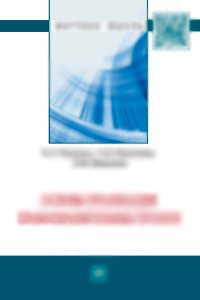Methodology of analysis of the operating environment (in the English version — Data envelope Analysis) for the last 30 years is one of the most popular and dynamically developing areas in operations research. Whereas previously the DEA models were known only to professional mathematicians, in recent years there have been many new and interesting applications of the DEA methodology to solving a wide range of management problems from various areas of management. The popularity of DEA is explained, on the one hand, by the fact that this methodology is based on the fundamental principles of mathematical Economics, which allows to obtain modeling results that are quite easily interpreted from the point of view of the economist. On the other hand, the advantage of DEA is the ability to model the activities of economic agents in the absence of any assumptions about the form of functional dependence between the inputs consumed by them and the outputs produced, i.e. to consider the activity of any production system as a "black box". However, the methodology of the DEA is still little known in Russia, as indirectly evidenced by the lack of generally accepted Russian-language terminology in this area. The few publications devoted to DEA, as a rule, are written for specialists with serious mathematical training. The monograph is intended to acquaint a wide audience of students, undergraduates, postgraduates, researchers and practitioners from the field of management with the possibilities of using the DEA methodology for solving a wide class of practical problems. A feature of the monograph is the focus on a relatively new class of DEA models specifically designed to solve problems in the field of environmental management.
Methodology of analysis of the operating environment (in the English version — Data envelope Analysis) for the last 30 years is one of the most popular and dynamically developing areas in operations research. Whereas previously the DEA models were known only to professional mathematicians, in recent years there have been many new and interesting applications of the DEA methodology to solving a wide range of management problems from various areas of management. The popularity of DEA is explained, on the one hand, by the fact that this methodology is based on the fundamental principles of mathematical Economics, which allows to obtain modeling results that are quite easily interpreted from the point of view of the economist. On the other hand, the advantage of DEA is the ability to model the activities of economic agents in the absence of any assumptions about the form of functional dependence between the inputs consumed by them and the outputs produced, i.e. to consider the activity of any production system as a "black box". However, the methodology of the DEA is still little known in Russia, as indirectly evidenced by the lack of generally accepted Russian-language terminology in this area. The few publications devoted to DEA, as a rule, are written for specialists with serious mathematical training. The monograph is intended to acquaint a wide audience of students, undergraduates, postgraduates, researchers and practitioners from the field of management with the possibilities of using the DEA methodology for solving a wide class of practical problems. A feature of the monograph is the focus on a relatively new class of DEA models specifically designed to solve problems in the field of environmental management.





